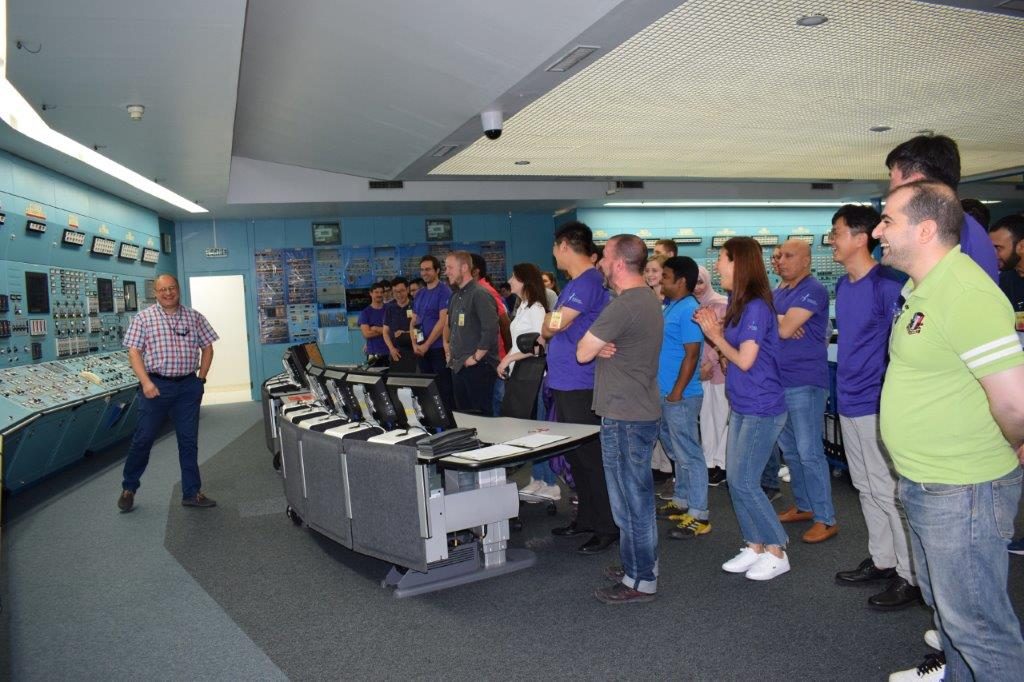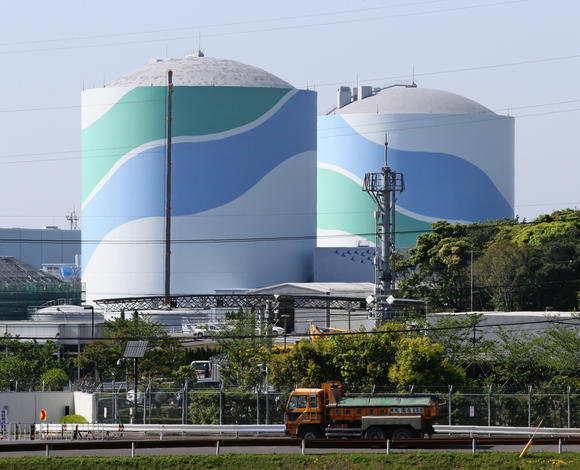Was just in Oxford where I gave a lecture to the WNU Summer institute – a great group of young people who are committed to working in the nuclear industry and doing what they think is best for their and our collective futures. Oxford is a great place to quietly contemplate recent events and consider whether or not we are going in the right direction. (Not to mention I enjoyed having lunch in the “Harry Potter” dining hall).
As were many, I was interested in the recent paper written by Ten Hoeve and Mark Jacobson from Stanford University, ‘Worldwide health effects of the Fukushima Daiichi nuclear accident’ published in the journal Energy and Environmental Science basically predicting that there will be 130 cancer deaths globally from the Fukushima accident. While it would easy to simply accept this outcome since the number of deaths is relatively low, especially in the context of the large number of deaths caused by the earthquake and tsunami in Japan, the study has been criticized as poor science – and very effectively by Mark Lynas. It is not the criticism that I find interesting but the comments on Mark’s blog by those both supporting and opposing the study, including the authors. Now I don’t want to spend my time discussing the study as in my opinion Mark did a fine job – but rather the implications of the two sides debating it.
I recently read “The Believing Brain” by Dr. Michael Shermer (as well as some other stuff) that helps to create some understanding of the situation that we find ourselves in. What I found fascinating about the debate on the Stanford study is not whether or not it is accurate or nonsense, but the fact that independent of the facts, the chance of either side changing their opinion in any way based on the debate is effectively zero. Or in other words as clearly stated by Michael Shermer – beliefs come first – we then look for information to support these beliefs and the more we investigate the stronger we believe. We have natural filters to dismiss opposing views and carefully collect supporting evidence for our position.
The issue is important because we as scientists and engineers love to believe that if only we can better educate the public then they will come around to see what we so obviously see. Well, unfortunately nothing can be further from the truth. Most peoples’ beliefs are so embedded that no matter how much more information is provided, they are most unlikely to change their point of view.
Let’s come back to the fundamental issue of concern. The public generally believes that nuclear power is inherently dangerous. So what we really need to do is to try and understand where these beliefs come from and then work to get to the source and see if over time we can change some of these perceptions. And frankly as I have stated before, we are inadvertent contributors to this belief as we in the industry love to explain how difficult it is to manage nuclear power and how seriously we take safety thus reinforcing that it must be very dangerous indeed.
I visited the Atomic Test Site Museum in Las Vegas a couple of weeks back and it is obvious that the association of nuclear power with nuclear weapons is a powerful one. In the museum there was mention of TMI and Chernobyl as examples of when the peaceful use of this technology went wrong. And this even translates to popular culture. In the recent Batman movie, the core of a new advanced fusion reactor is designed for good to power the world and yet is removed and transformed into a weapon of mass destruction in mere moments by a very smart scientist (although apparently there is only one such smart guy). While only a movie the connection between atomic weapons and power is simple and clear.
Going back to the debate over the Stanford study, let’s consider other examples that I have used in the past. First we recently had the final report released on the cause of the Air France crash out of Brazil a couple of years back. It found root causes, suggested corrective actions and that was that. There is no “anti flying” group that came out and said, “see – look what happened here – clearly air travel is too dangerous and it should be abolished.” In fact we laugh at the thought of it. Yet more people died on this one flight than the nuclear industry has killed in its entire history. This is because we fundamentally believe that air travel is safe. That’s not to say that at some level of accidents, the public would stop flying – but where is this level? I don’t know.
The same with the organic food farming incident in Germany. Killed 50 hospitalized 4000 and there is no anti organic food group writing reports on the dangers of organic farming and calling for an end to it.
Yet every nuclear incident is more proof of why nuclear power shouldn’t exist. As told to me by my very talkative taxi driver in Vegas on the way to the airport- we have solar and wind, we don’t really need nuclear power. The implication being that we all know nuclear power is dangerous and that if we have alternatives, we should use them first.
Of course the truth is actually the opposite. Nuclear power is economic, clean, efficient, reliable and concentrated using very little land. This makes it a great option for long term power production, not the option of last resort.
So if we can’t change people’s minds through education alone, what do we do next? Well, an unexpected event or crisis is what will cause some people to revisit their beliefs. In this case the recent crisis is negative for the industry (Fukushima) so many are now questioning nuclear power. Yet somehow in a number of countries support for nuclear power remains strong.
In the UK, support for nuclear power is rising, even following Fukushima and with their close neighbours Germany deciding to abandon their nuclear program. Why is this? Well one thought is that the British understand that they are in dire need of electricity and are very concerned about being overly dependent upon gas from Russia (the crisis). Another contributing factor would be the post Fukushima conversion of George Monbiot to nuclear supporter. He is credible with the public and has taken tough stands on many popular issues. There is no doubt that if he changed his mind on nuclear that is food for thought to the public.
In the US, energy independence is an important issue. Americans do not want to be overly dependent upon middle eastern states for their energy and are looking for ways to be more self sufficient. Nuclear power is one option to help them solve this issue. But of course this support can be somewhat fragile unless we get to the root of the public’s concerns. For example, now in the US, gas prices are low once again allowing another viable option to overtake increasing support for nuclear.
So what am I getting to here? Well let’s put in one final quote from Dan Gardner’s book “Future Babble” which is actually a quote from Leon Festinger. “Suppose an individual believes something with his whole heart. Suppose further that he has a commitment to this belief, that he has taken irrevocable actions because of it; finally, suppose that he is presented with evidence, unequivocal and undeniable evidence, that his belief is wrong; what will happen? The individual will frequently emerge, not only unshaken, but even more convinced of the truth of his beliefs than ever before.” (I really liked this book and will cite it further in a future post.)
So does this mean the situation is hopeless? Not at all but we must fundamentally change how we approach the problem. We need to make use of experts as do other industries to better understand the driving issues behind negative views on nuclear power and then address the root cause. We must accept that the task at hand is large and may take a generation to accomplish and most of all we must acknowledge that there will be setbacks along the way. We must bring credible opinion leaders on side and we must have a global concentrated effort to demonstrate the benefits of nuclear power with simple focused and effective messages; but most of all provide a better understanding of the risks and note that the doomsday scenario is for the comics and not for real life.
I would like to know your thoughts on how we should work together as an industry going forward to really make headway on this important issue of the power of belief. After all, as are those who disagree with us, we are all committed to our beliefs – so how can we make the progress we need to bring more understanding and support for our answer to global energy needs?

